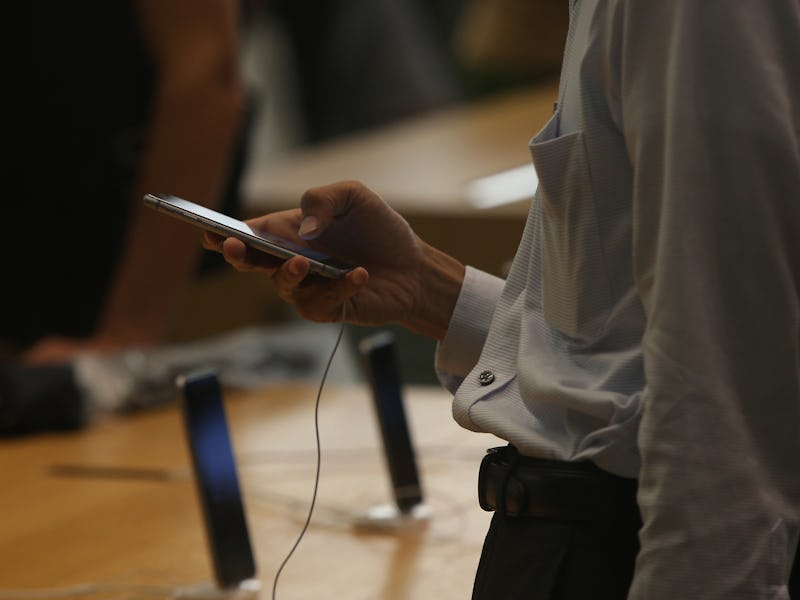Smartphone Sensors Could Predict Bipolar Episodes
Real-time data on movement and location could be integral to treatment.

The same sensors your phone uses to track your morning jog could help predict bipolar episodes.
A new study on potential medical uses for phone information, led by a team of researchers from Italy’s Center for Research and Telecommunication Experimentation for Networked Communities, found that the changes in body movement and behvior associated with emotion swings could be tracked via smartphone. Admittedly, the study was tiny — it only included 12 participants — but it does present an interesting accelerometer use case.
To treat patients with bipolar disorder, it’s critical to keep track of how long bipolar episodes last and how often they take place. Physicians do their best with regular interviews, but the researchers suggest that real-time data collected from smartphones could be infinitely more useful. In the study, which has been uploaded to the arXiv preprint server, the researchers collected body movement data in 12 people with bipolar disorder by giving them phones configured to track sensor data as well as email patterns and voice modulation
Comparing the data to baseline readings taken before the 12-week trial began, the researchers found that body movement alone could predict a bipolar episode 94 percent of the time. Combined with e-mail and voice data, accuracy hit 97 percent.
In theory, it’s a great idea. But it isn’t clear whether the system would work in practice. For this system to work, patients would have to work together with their doctors, agreeing to keep their phones handy at all times and essentially turn them into tracking devices. The authors admit it won’t be easy, given that paranoia is a common characteristic of the disease and compliance isn’t always guaranteed.